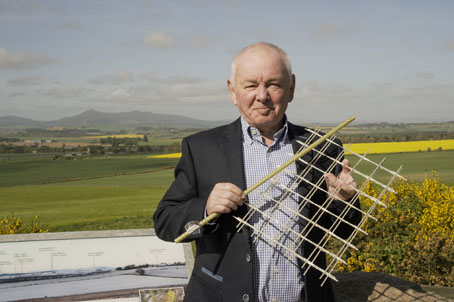REBARMAT, a leading manufacturer of Glass Fibre Reinforced Polymer (GFRP) rebar, has launched its UK offering, making its advanced composite reinforcement products available to the UK and Irish construction and onshore and offshore wind markets for the first time.
Aberdeenshire entrepreneur and businessman, Ian Skene formerly of Recycl8 and Agile Energy Recovery has agreed a distribution and sales agreement with Latvian company Rebarmat to launch the UK entity, RebarmatUK for an undisclosed amount.
At a time when the construction industry faces growing pressure to reduce emissions and boost efficiency, REBARMAT® presents a high-performance, low-carbon alternative to traditional steel rebar. With an embodied carbon footprint of approximately 0.8 tonnes of CO₂ per tonne of product, compared to 2.0 to 2.6 tonnes for conventional steel rebar, it offers a significant reduction in (CO2 footprint) emissions.
Additionally, REBARMAT® is significantly lighter and up to four times stronger than steel, fully resistant to corrosion, and non-conductive. These attributes help reduce transport, installation, and long-term maintenance costs by up to 50% compared to traditional steel.
REBARMAT UK who have opened a base in the Thainstone Business Centre, will create up to 20 jobs by 2027, starting with regional sales roles and growing to a full operational team and local manufacturing.

Ian Skene, Managing Director of REBARMAT UK, said:
“We are thrilled to launch REBARMAT® to the UK and Ireland markets at a time when the construction industry is seeking smarter, longer-lasting solutions. As an alternative to traditional steel, REBARMAT will provide an opportunity for businesses to rethink the way they build, with an alternative that delivers performance, savings, and sustainability.”
“By switching from metal rebar to composite GFRP, customers can achieve significant cost savings thanks to reduced material quantities, easier handling, and lower installation and shipping costs. The product’s durability means structures require far less maintenance over time, making it a highly economical choice for both public and private sector projects. The material has been extensively utilised worldwide since it was originally manufactured in New Zealand in 2008, but until now it’s not been available in the UK and Ireland, so to now be able to offer this opportunity will be game-changing for the regions.”
 KEYFACT Energy
KEYFACT Energy